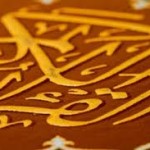Is there punishment if one commits Shirk without knowing?
QUESTION:
Is someone commits shirk such as making Du’a to somthing else other then Allah with out knowing at the time that it’s shirk will Allah punish them can you repent will Allah forgive you
ANSWER:
In the Name of Allah, the Most Gracious, the Most Merciful.
As-salāmu ‘alaykum wa-rahmatullāhi wa-barakātuh.
In principle, Allah Ta’ālā can forgive all sins, no matter how big or small, perpetual or temporary, unless one dies upon shirk (in the state that he associates partners with Allah). Allah Ta’ālā himself has stated:
يَا ابْنَ آدَمَ إِنَّكَ لَوْ أَتَيْتَنِي بِقُرَابِ الأَرْضِ خَطَايَا ثُمَّ لَقِيتَنِي لاَ تُشْرِكُ بِي شَيْئًا لأَتَيْتُكَ بِقُرَابِهَا مَغْفِرَةً
Oh son of Ādam! If you came to me with sins nearly as great as the earth, and then you meet Me, not associating anything with Me, I would come to you with an earth-full of forgiveness. [1]
In the Holy Qur’ān, Allah Ta’ālā mentions:
قُلْ يَا عِبَادِيَ الَّذِينَ أَسْرَفُوا عَلَىٰ أَنفُسِهِمْ لَا تَقْنَطُوا مِن رَّحْمَةِ اللَّهِ ۚ إِنَّ اللَّهَ يَغْفِرُ الذُّنُوبَ جَمِيعًا ۚ إِنَّهُ هُوَ الْغَفُورُ الرَّحِيمُ
Say, “Oh My servants who have transgressed against themselves [by sinning], do not despair of the mercy of Allah. Indeed, Allah forgives all sins. Indeed, it is He who is the Forgiving, the Merciful.” [2]
The Holy Prophet (peace be upon him) is narrated to have said:
يَا غُلاَمُ إِنِّي أُعَلِّمُكَ كَلِمَاتٍ احْفَظِ اللَّهَ يَحْفَظْكَ احْفَظِ اللَّهَ تَجِدْهُ تُجَاهَكَ إِذَا سَأَلْتَ فَاسْأَلِ اللَّهَ وَإِذَا اسْتَعَنْتَ فَاسْتَعِنْ بِاللَّهِ
Oh Youngster! I will teach you a statement: Be mindful of Allah and He will protect you. Be mindful of Allah and you will find Him before you. When you ask, ask Allah, and when you seek aid, seek Allah’s aid. [3]
The above verses and Ahādīth (prophetic traditions) inform us about the magnitude of the mercy of Allah. He is telling us to turn to him in our darkest moments and to take a sliver of hope back with us. Why would we turn away from this invitation towards redemption. In fact, it has been narrated:
أَذْنَبَ عَبْدٌ ذَنْبًا فَقَالَ اللَّهُمَّ اغْفِرْ لِي ذَنْبِي . فَقَالَ تَبَارَكَ وَتَعَالَى أَذْنَبَ عَبْدِي ذَنْبًا فَعَلِمَ أَنَّ لَهُ رَبًّا يَغْفِرُ الذَّنْبَ وَيَأْخُذُ بِالذَّنْبِ . ثُمَّ عَادَ فَأَذْنَبَ فَقَالَ أَىْ رَبِّ اغْفِرْ لِي ذَنْبِي . فَقَالَ تَبَارَكَ وَتَعَالَى عَبْدِي أَذْنَبَ ذَنْبًا فَعَلِمَ أَنَّ لَهُ رَبًّا يَغْفِرُ الذَّنْبَ وَيَأْخُذُ بِالذَّنْبِ . ثُمَّ عَادَ فَأَذْنَبَ فَقَالَ أَىْ رَبِّ اغْفِرْ لِي ذَنْبِي . فَقَالَ تَبَارَكَ وَتَعَالَى أَذْنَبَ عَبْدِي ذَنْبًا فَعَلِمَ أَنَّ لَهُ رَبًّا يَغْفِرُ الذَّنْبَ وَيَأْخُذُ بِالذَّنْبِ وَاعْمَلْ مَا شِئْتَ فَقَدْ غَفَرْتُ لَكَ
A servant committed a sin and he said: Oh Allah, forgive me my sins, and Allah (the Exalted and Glorious) said: My servant committed a sin and then he came to realise that he has a Lord Who forgives the sins and takes to account (the sinner) for the sin. He then again committed a sin and said: My Lord, forgive me my sin, and Allah, the Exalted and High, said: My servant committed a sin and then came to realise that he has a Lord Who would forgive his sin or would take (him) to account for the sin. He again committed a sin and said: My Lord, forgive me for my sin, and Allah (the Exalted and High) said: My servant has committed a sin and then came to realise that he has a Lord Who forgives the sins or takes (him) to account for sin. O servant, do what you like. I have granted you forgiveness. [4]
Shaytan, who is man’s true enemy, is delighted when he sees a servant lose hope and fall into despair. Thus, it is imperative that a believer never loses hope if he is sincere in his repentance. He should instead dust himself off, pick himself up and carry on walking in this journey of life, seeking Allah’s happiness and closeness.
One may lose hope after misunderstanding a verse of the Holy Qur’ān, however, it should be noted that this verse is referring to one who dies in the state of shirk.
And Allah Ta’ālā Knows Best
Hanif Yusuf
References
[1]
Timridhī: 3540
[2]
al-Qur'an: 39:53]
[3]
Timridhī: 2706
[4]
Muslim: 2758
معلوم ہواکہ اللہ تعالی کی مخصوص صفات خالق، رازق، قادر مطلق عالم الغيب والشهادة وغيرة میں کسی مخلوق کو الله کے برابر سمجھنا شرک ہے۔
[Ma'ārif al-Qur'ān: Idārah al-Ma'ārif: 2:551]
ومنها: أنهم كانوا يستعينون بغير الله في حوائجهم من شفاء المريض وغناء الفقير، وينذرون لهم، يتوقعون إنجاح مقاصدهم بتلك النذور، ويتلون أسماءهم رجاء بركتها، فأوجب الله تعالى عليهم أن يقولوا في صلاتهم : إياك نعبد وإياك نستعين. وقال تعالى: فلا تدعوا مع الله أحدا [الجن: الآية 18] وليس المراد من الدعاء العبادة، كما قاله المفسرون، بل هو الاستعانة، لقوله تعالى: بل إياه تدعون فيكشف ما تدعون. [الأنعام: الآية 41]
[Hujjah Allah al-Bālighah: Dār al-Jayyid]
(الشرك بالله) إلخ: قال ابن القيم في مدارج السالكين»: «أما الشرك فهو نوعان: أكبر وأصغر، فالأكبر لا يغفره الله إلا بالتوبة منه، وهو أن يتخذ من دون الله ندا ، يحبه كما يحب الله، وهو الشرك الذي تضمن تسوية آلهة المشرکین برب العالمين،
[Mawsū'ah Fath al-Mulhim: Dār Ihyā al-Turāth al-'Arabī: 2:79]
وانما العبادة عبارة عن الاعتقاد و الشعوربان للعبود سلطة غيبية فوق الاسباب يقدرها على النفع والضر فكل دعاء او ثناء او تعظیم یصاحبه
هذا الاعتقاد والشعور فهو عبادة. ان عبارات کا مقتضا یہ ہے کے قبر پرستوں اور تعزیہ پرستوں میں جولوگ اہل قبور یا تعریہ کی نسبت تأثير غيبي کے معتقد ہیں وہ مشرک ہیں اور جو محض ظاہری تعظیم کے طور پر ان کو سجدہ وغیرہ کرتے ہیں اور ان کے معتقد نہیں وہ شرك عملى کی وجہ سے فاسق ہیں کافر نہیں.
اور بعض کا یہ عقیدة ہوتا ہے کہ ايسى قدرت مستقلہ تو کسی مخلوق میں نہیں مگر بعض مخلوق کو قرب وقبول کا ایسا درجہ عطا ہوتا ہے کہ یہ اپنے متوسلین کے لئے سفارش کرتے ہیں پھر اس سفارش کے بعد بھی أن كو نفع وضرر کا اختیار نہیں دیا جاتا بلکہ حق تعالئے ہی نفع وضرر پہنچاتے ہیں لیکن اس سفارش کے قبول
میں کبھی نہیں ہوتا اور اس سفارش کی تحصيل کے لئے اس کے ساتھ بلا واسطہ یا بواسطہ معاملہ مشابہ عبادت کرتے ہیں ی عقیده اعتقاد تاثیر نہیں ہے لیکن بلا دلیل شرعی بلکہ خلاف دلیل شرعی ایسا عقیدہ رکھنا معصیت اعتقادیہ اور مشابہ عبادت معاملہ کرنا معصیت عملیہ ہے اور اسی مشابہت کے سبب اطلاقات شرعیہ میں اس کو مشرک کہدیا جاتا ہے. قال الشيخ هزاعما مالي و الله اعلم۔
[Imdād al-Fatāwā: Maktabah Dār al-'Uloom Karāchī: 6:84]
DISCLAIMER:
The Ask Our Imam site hopes to respond to queries relating to Islamic law. It is not an Islamic Law Shari`ah Court. The questions and answers found on this website are for educational purposes. However, many of the rulings rendered here are distinct to the specific scenario and thus should be read in conjunction with the question and not taken as a basis to establish a verdict in another situation or environment. This site bears no responsibility in these responses being used out of their intended context, nor to any party who may or may not follow the responses given and is being hereby exempted from loss or damage howsoever caused. None of the responses rendered may be used as evidence in any Court of Law without prior written consent of Our Imam. Any reference to another website or link provided in our responses or article should not be taken as an endorsement of all the content on that website; in fact, it is restricted to the particular material being cited.
Posted in Aqaa'id (Beliefs) on 24th Jan 2022 by Our Imam | 1132 Views





